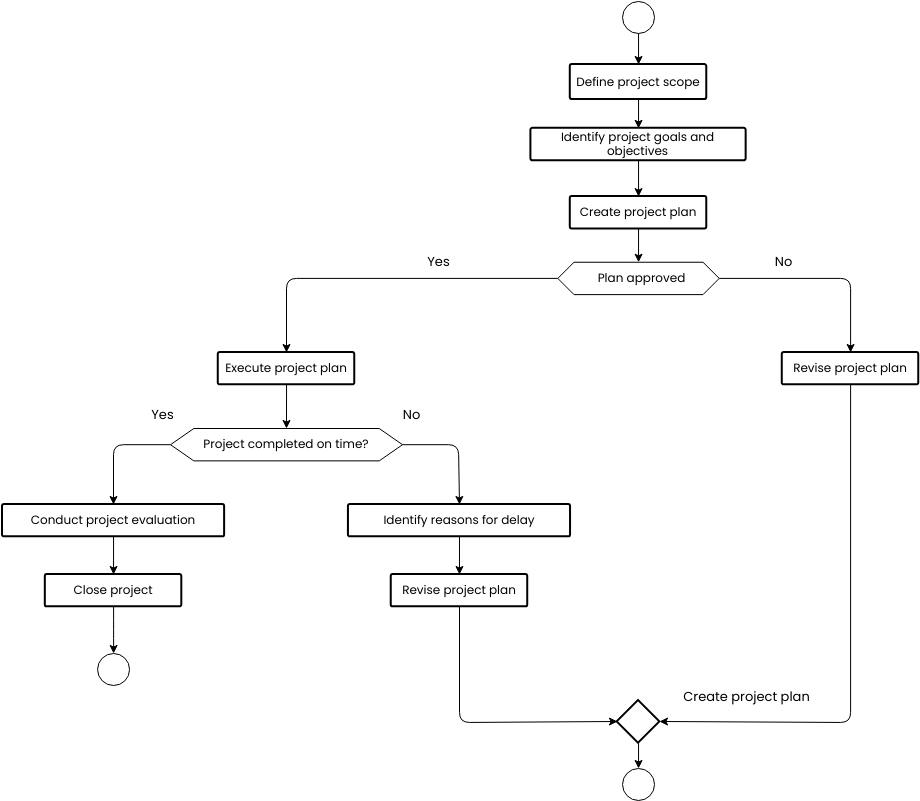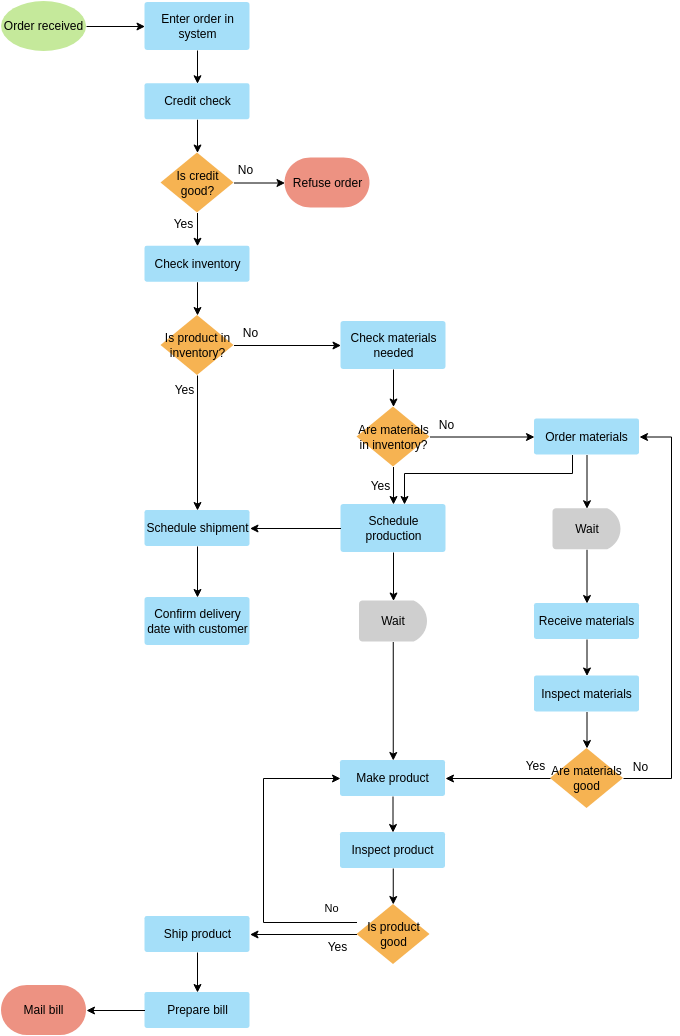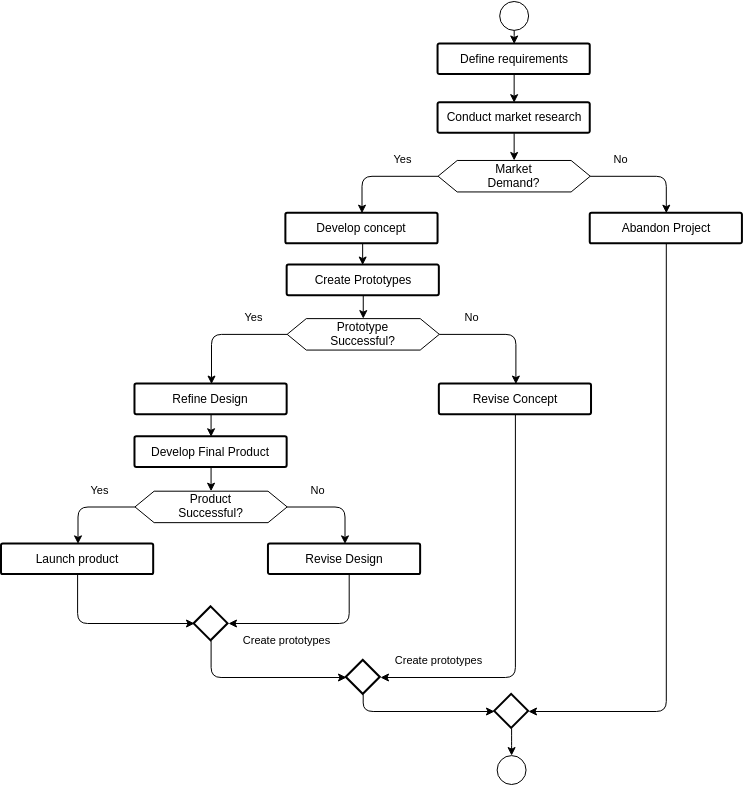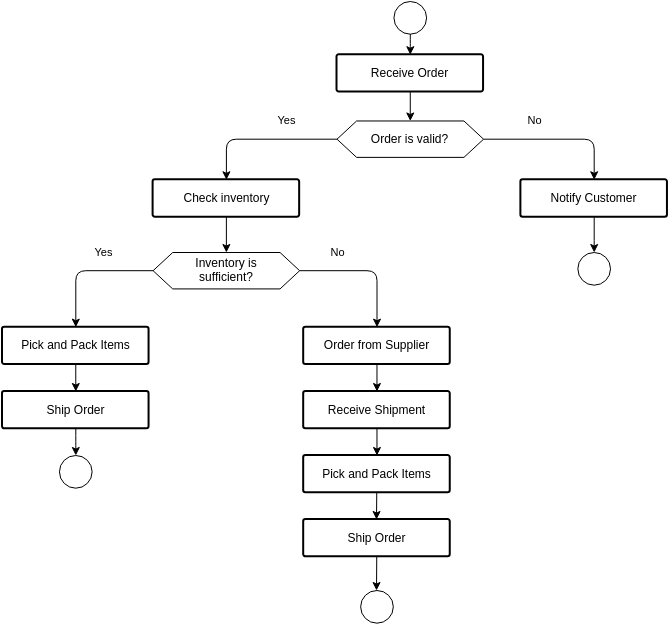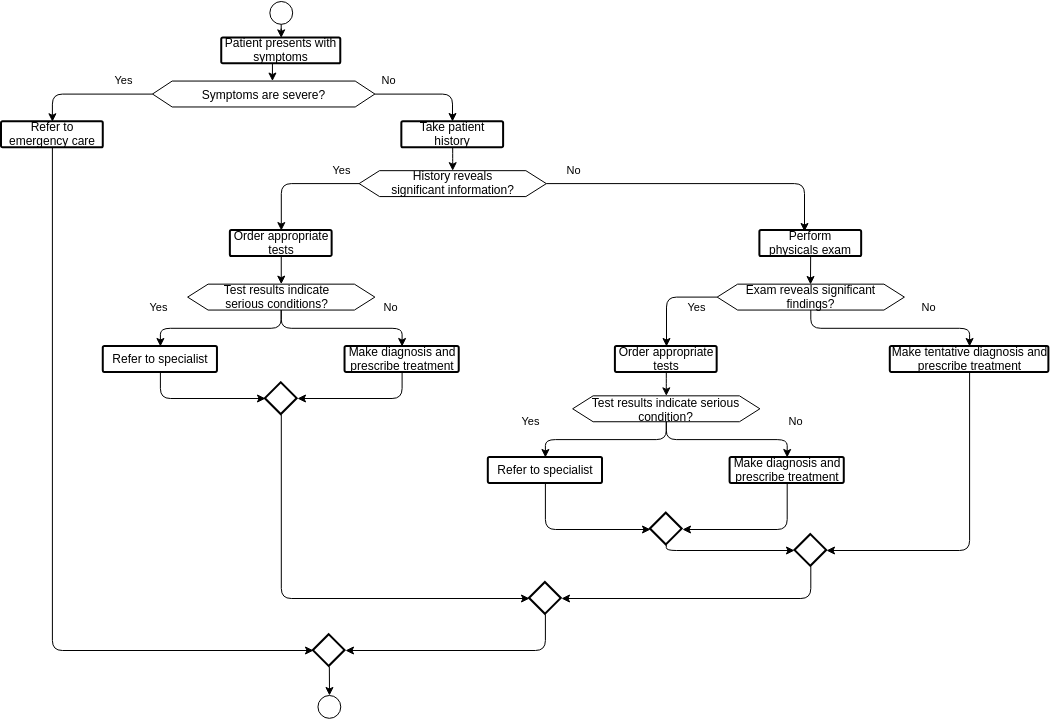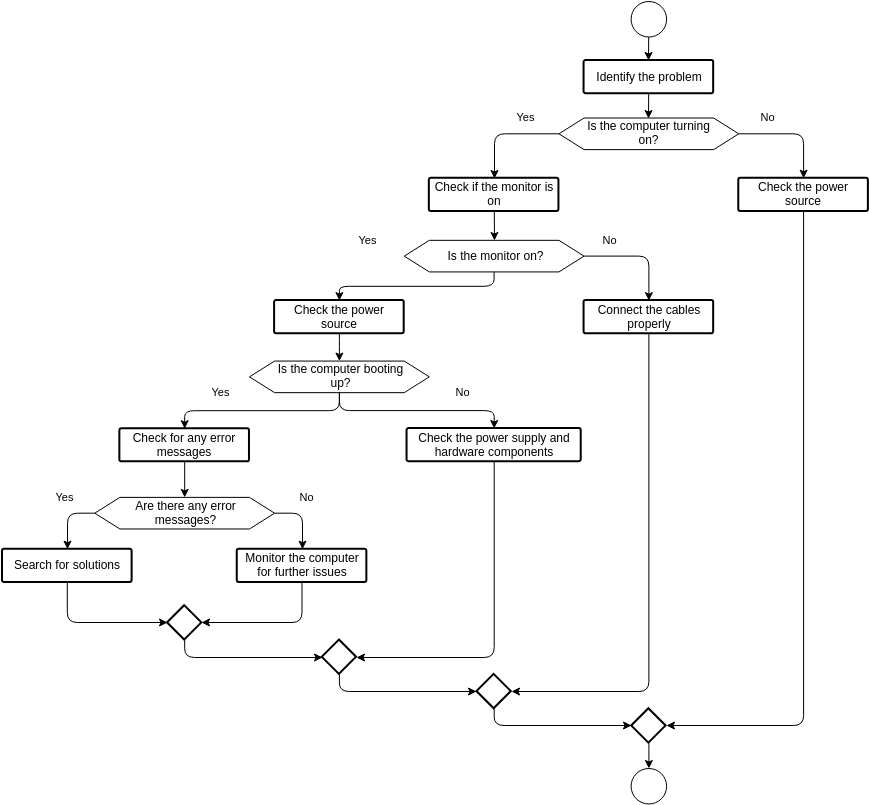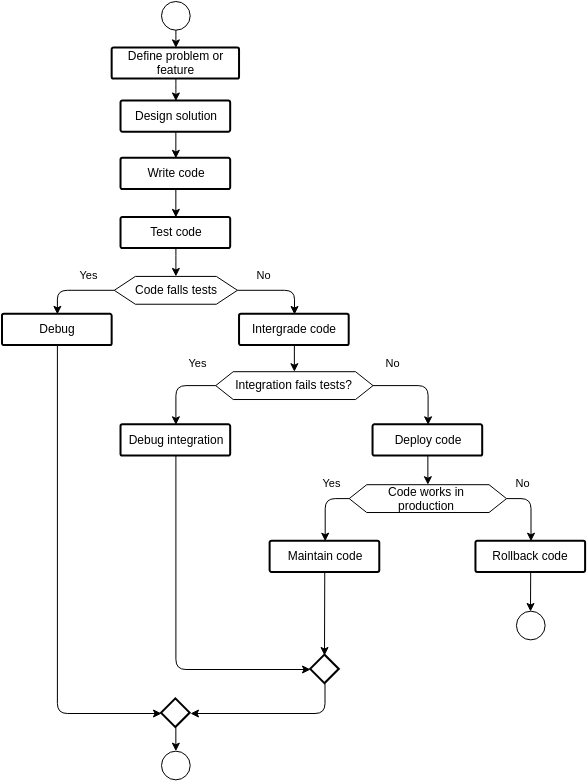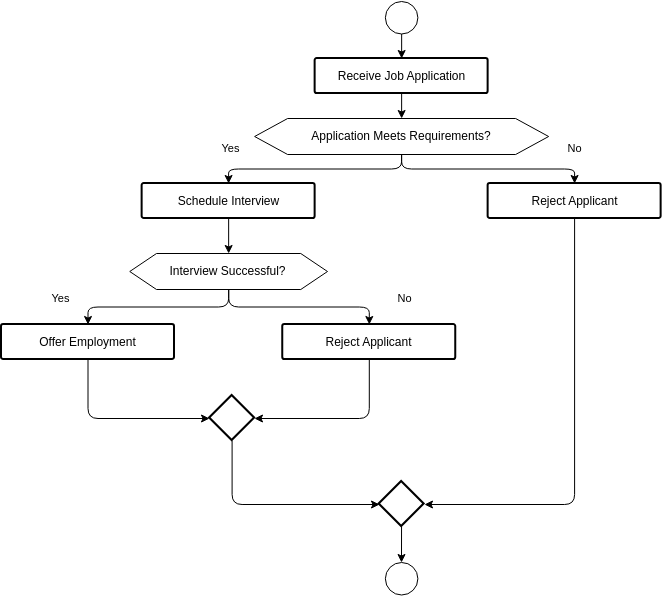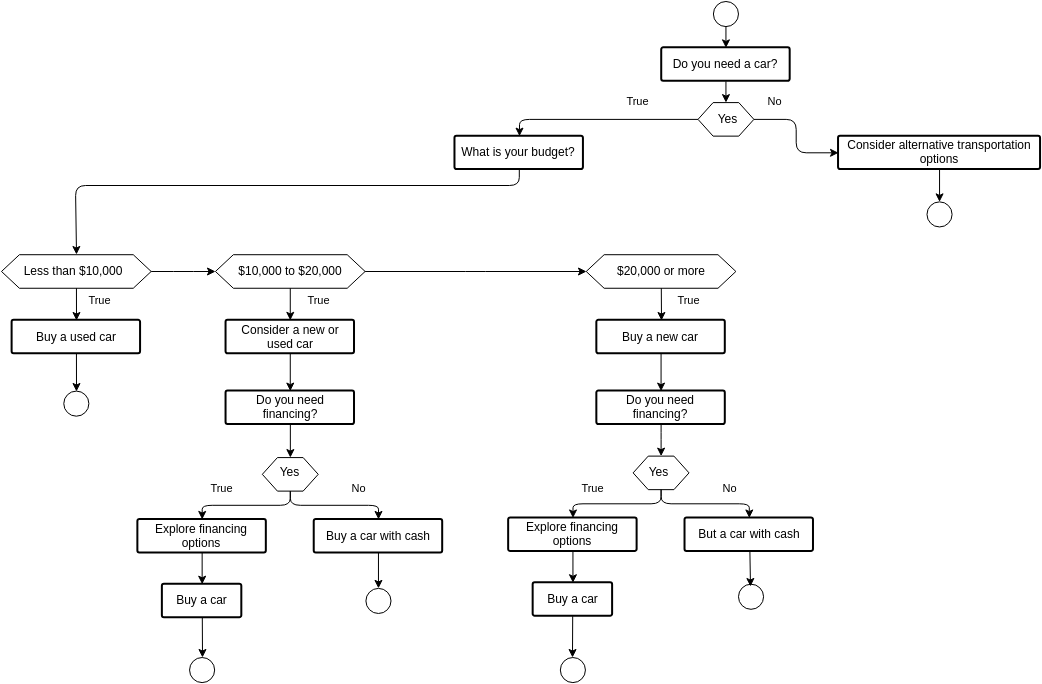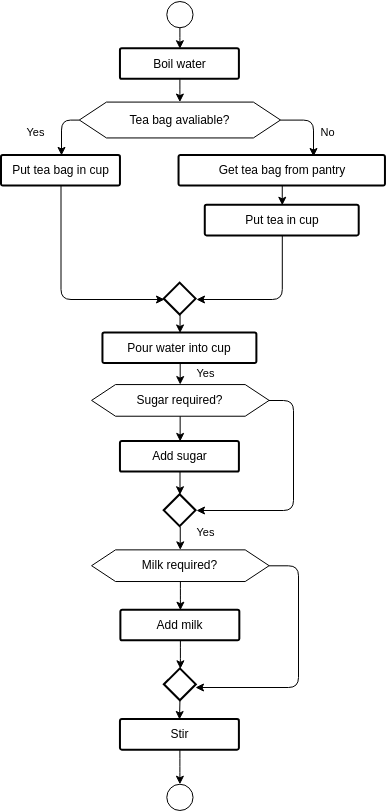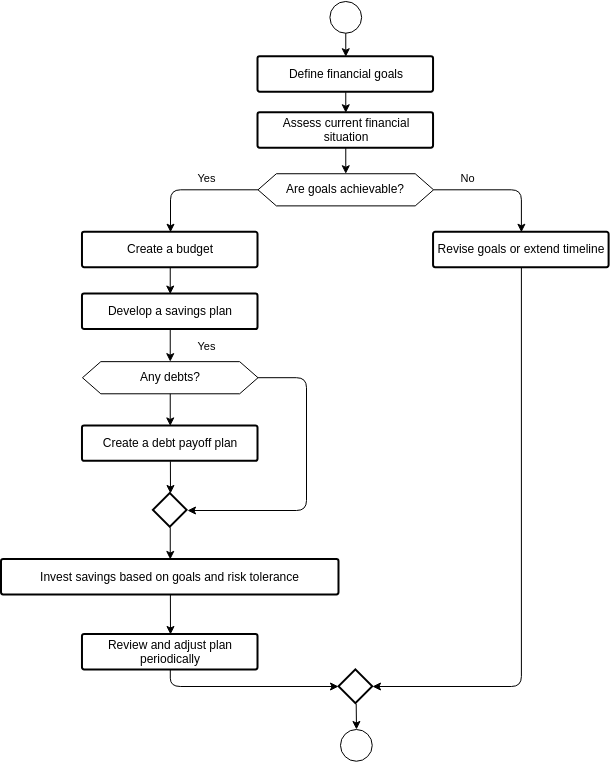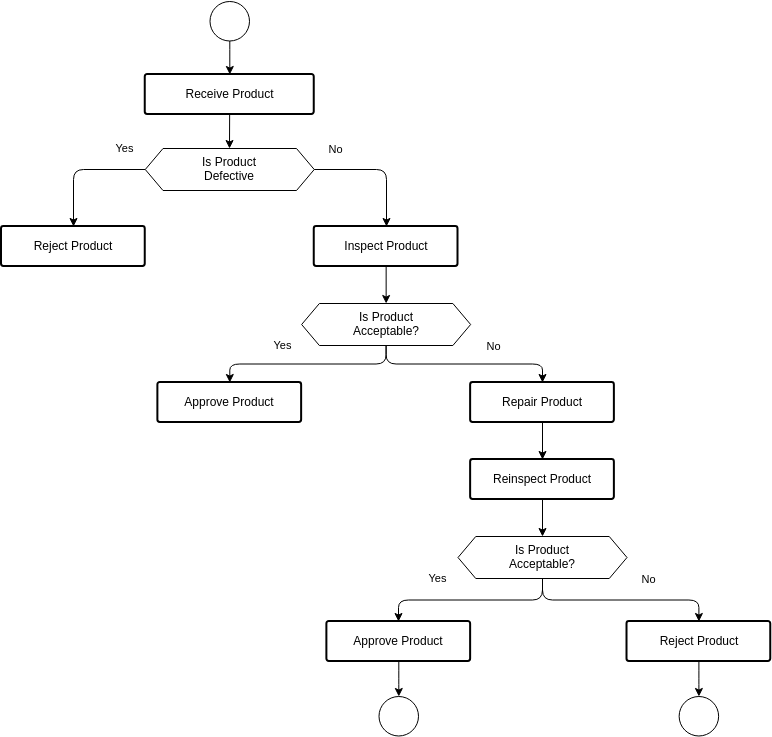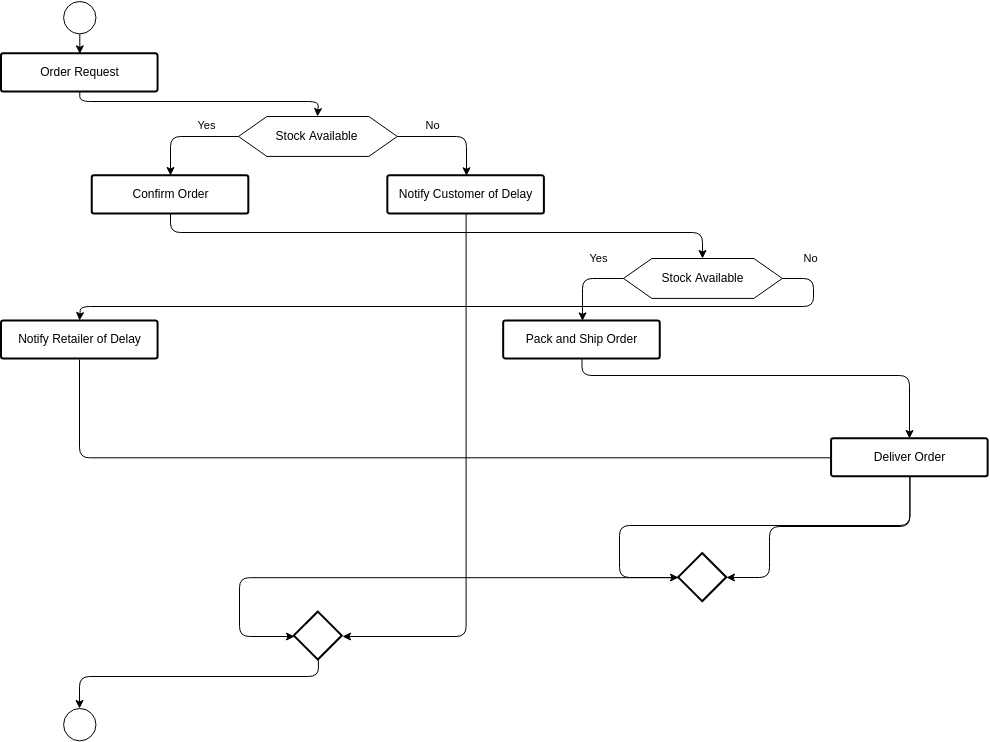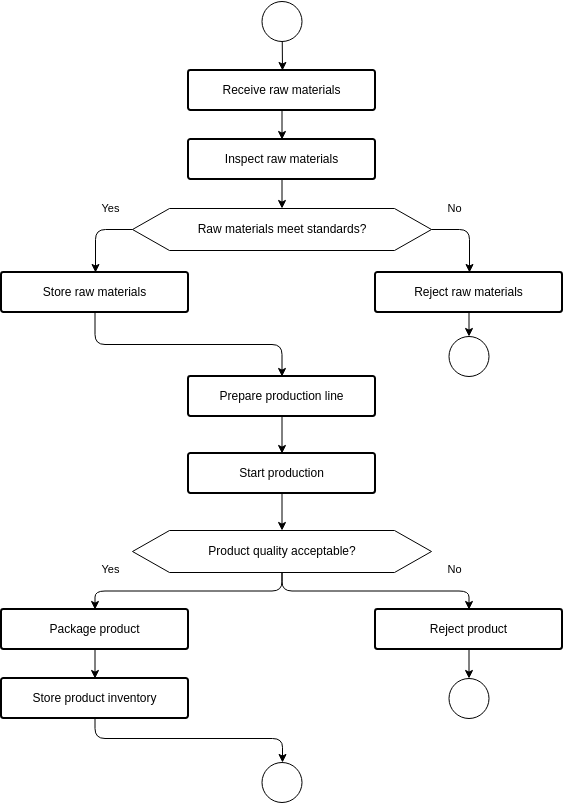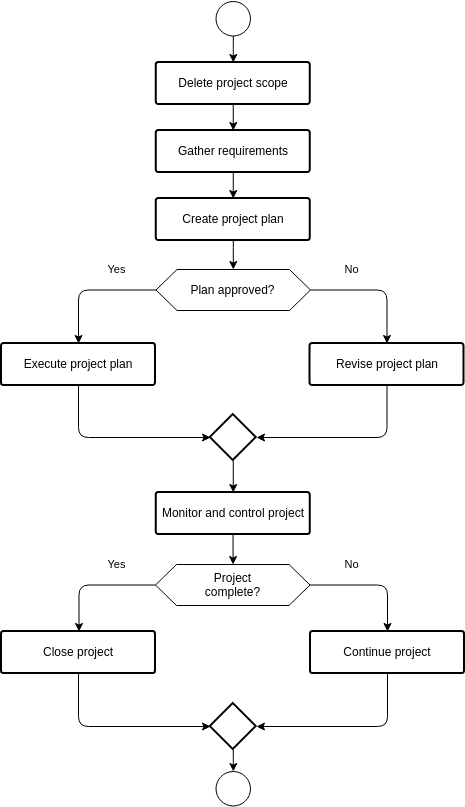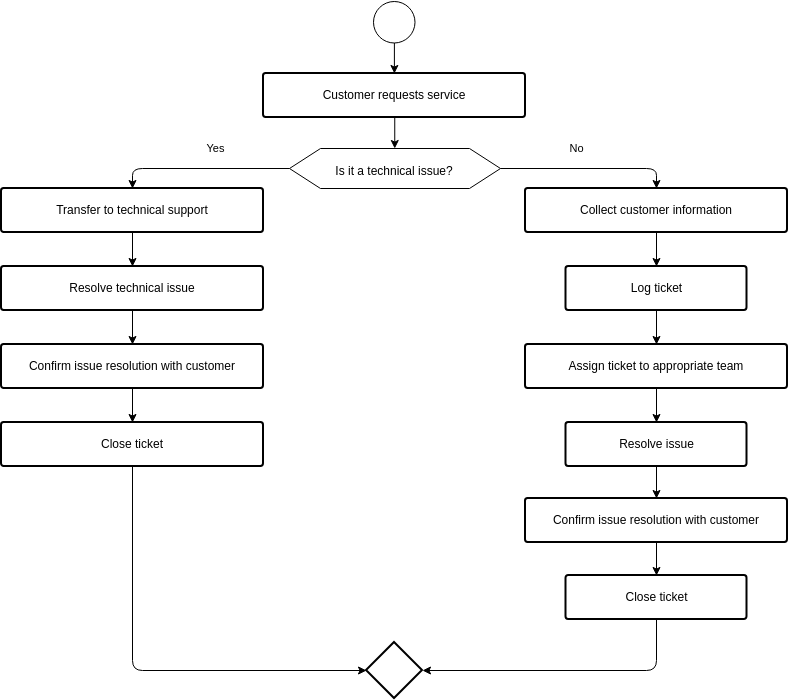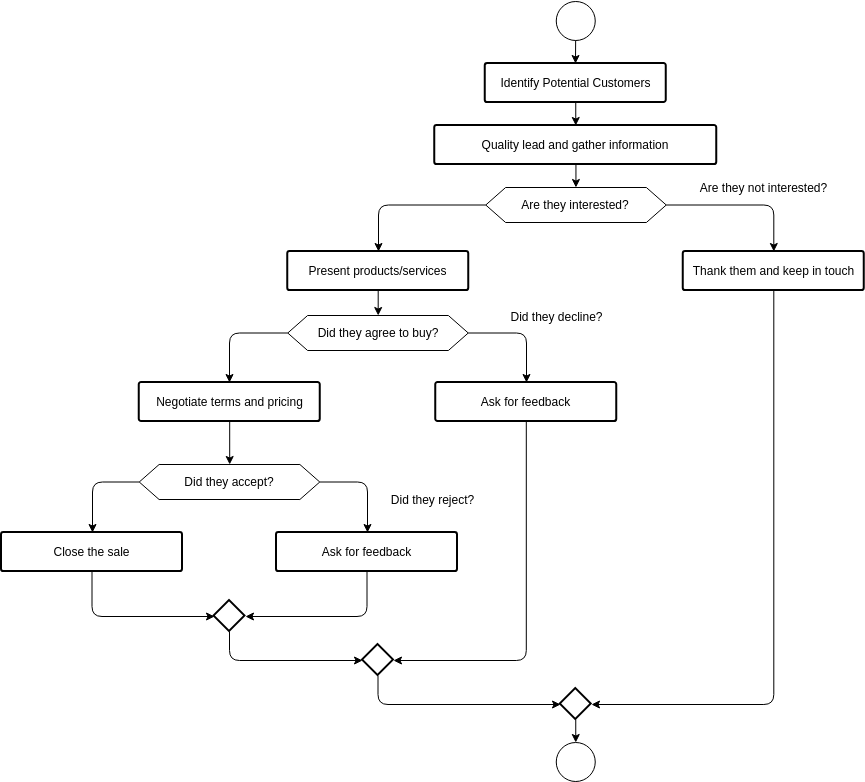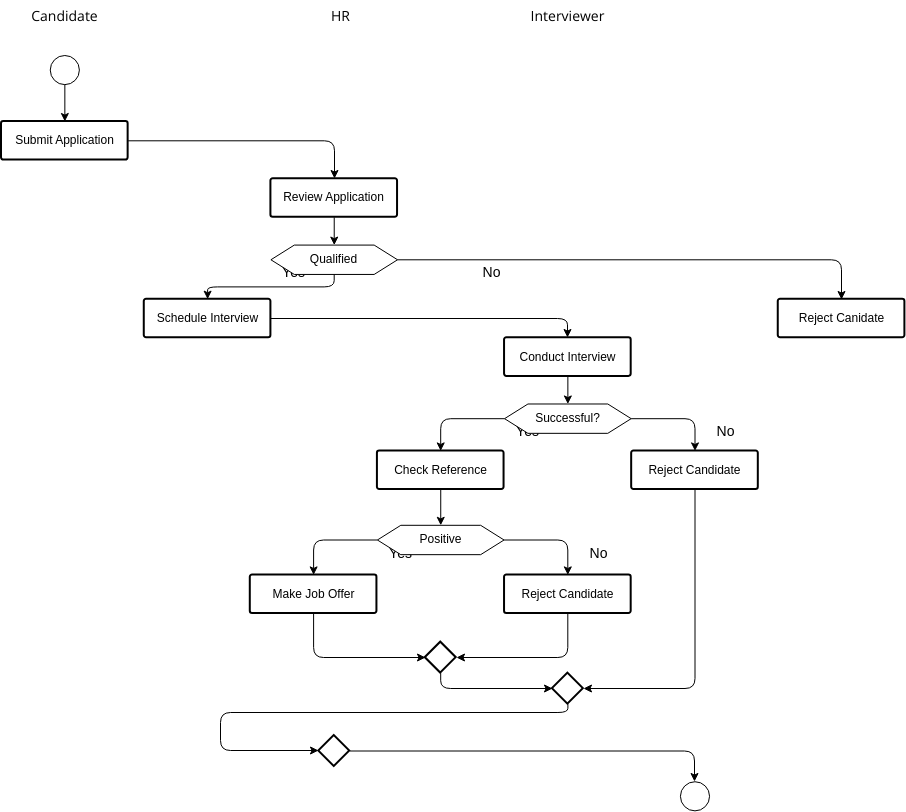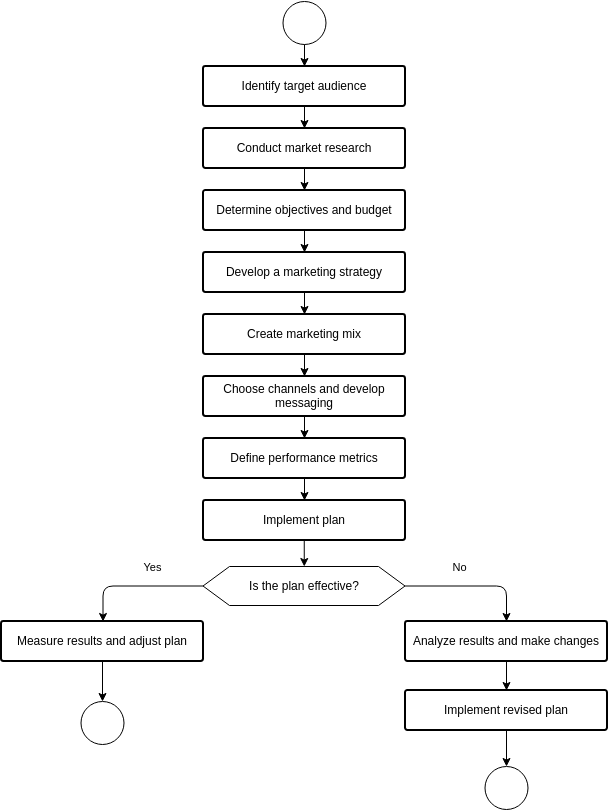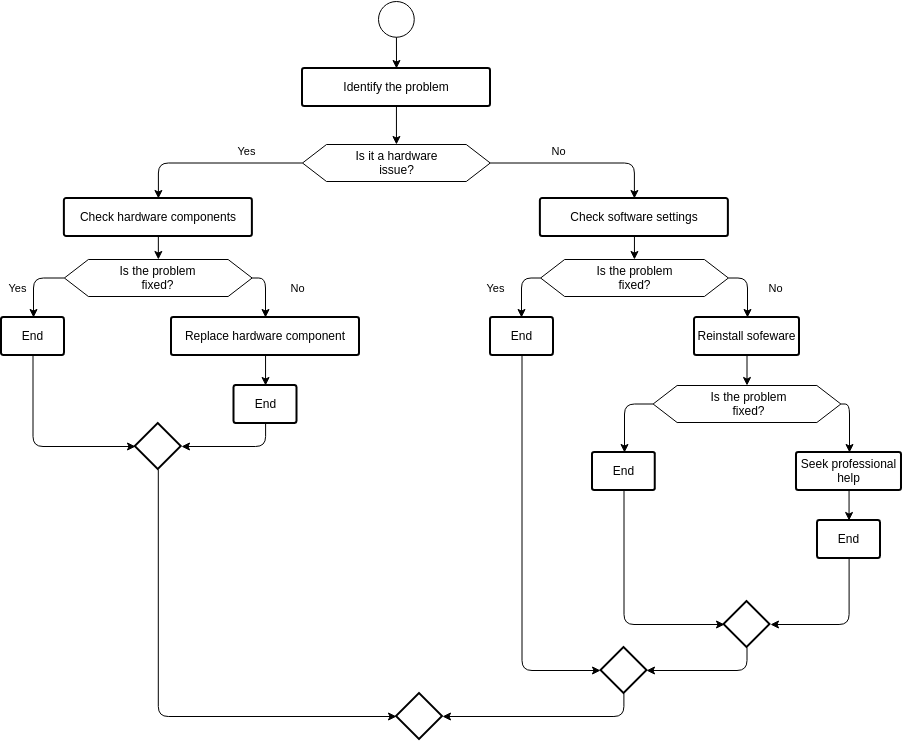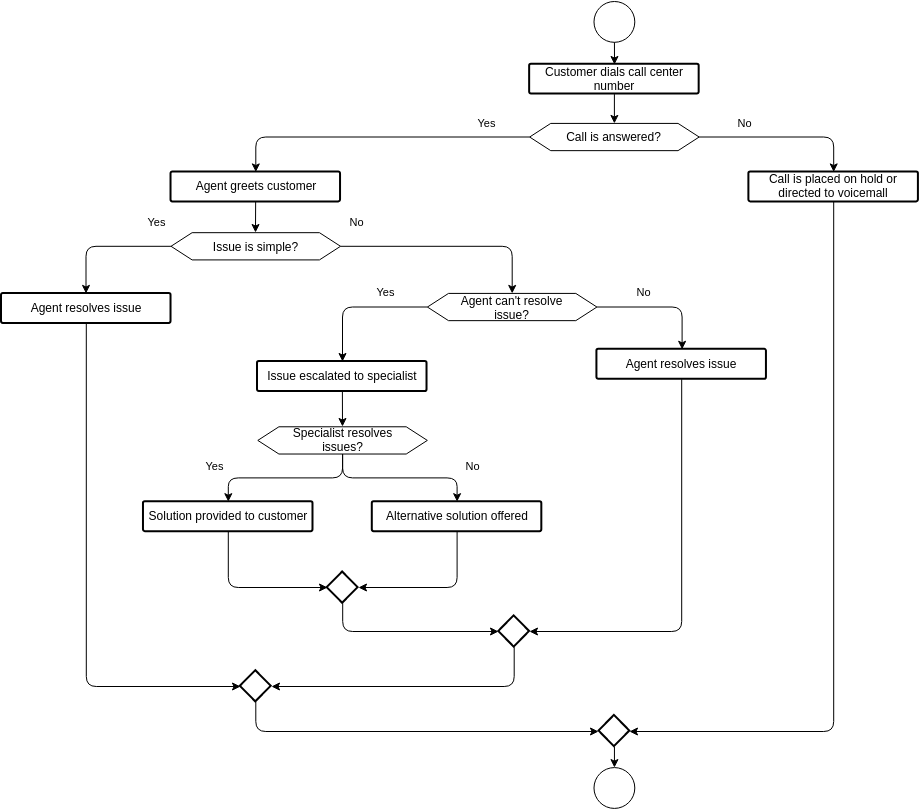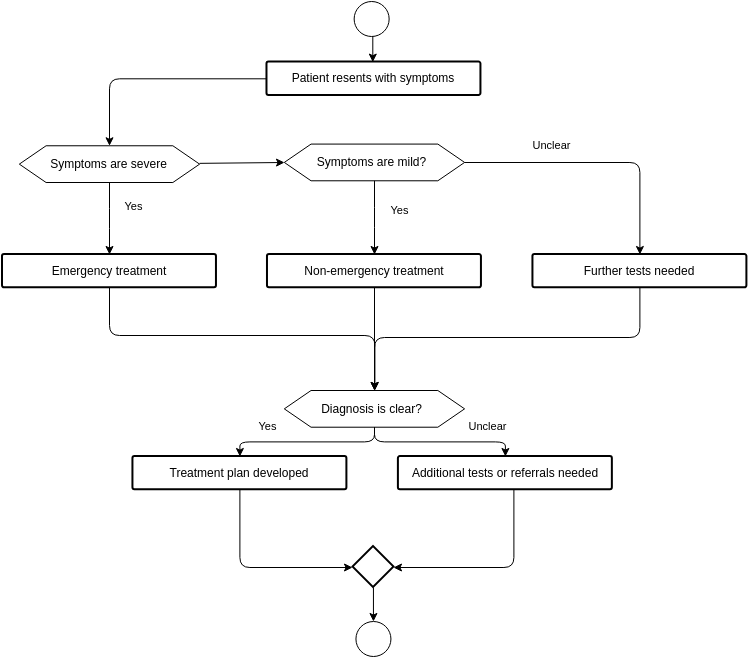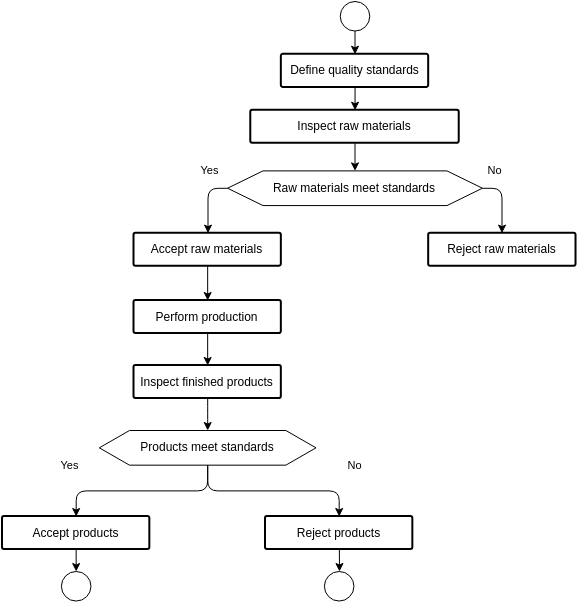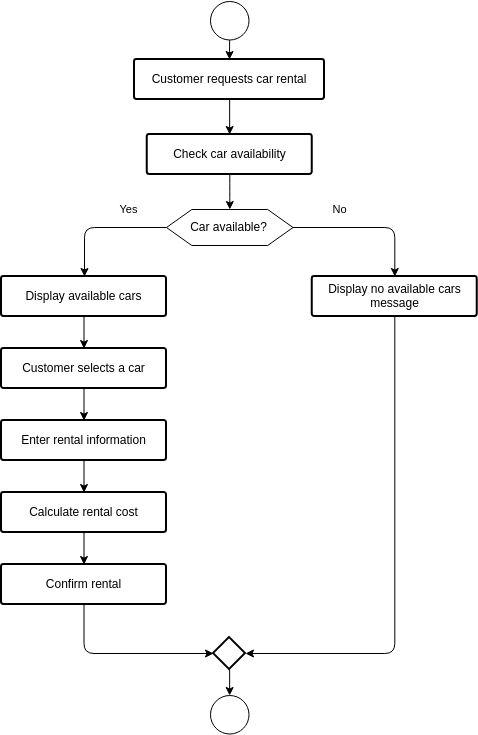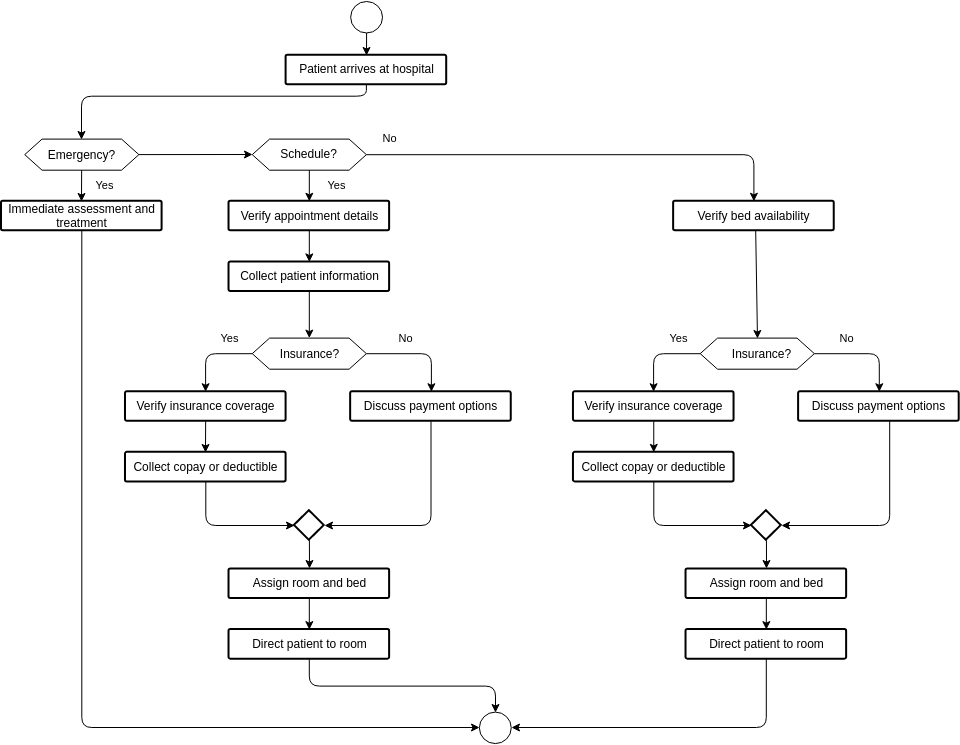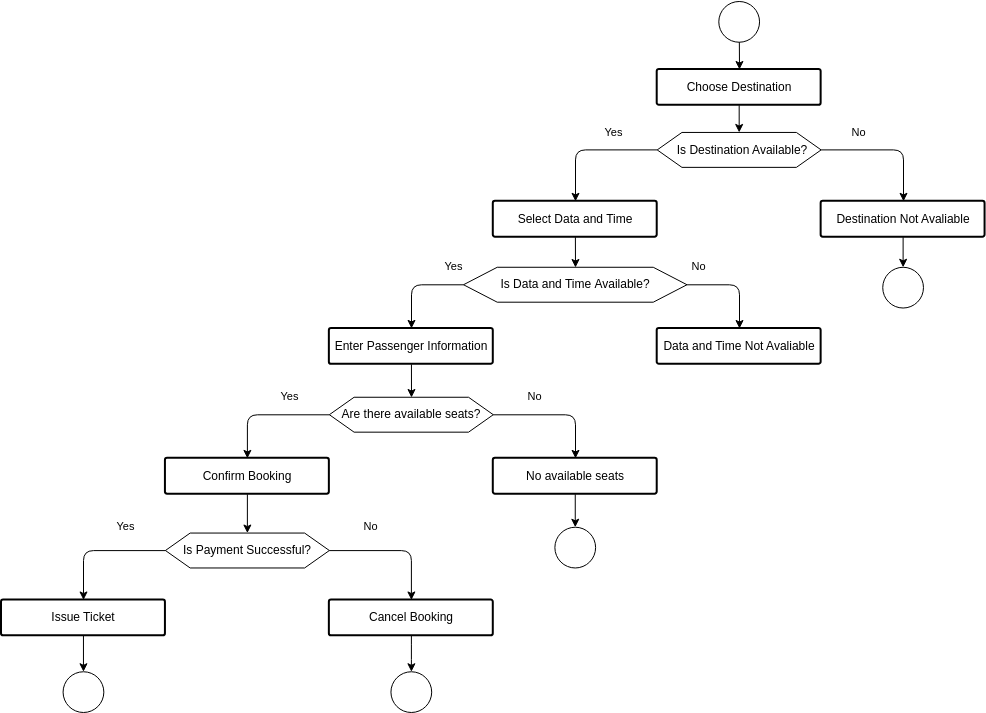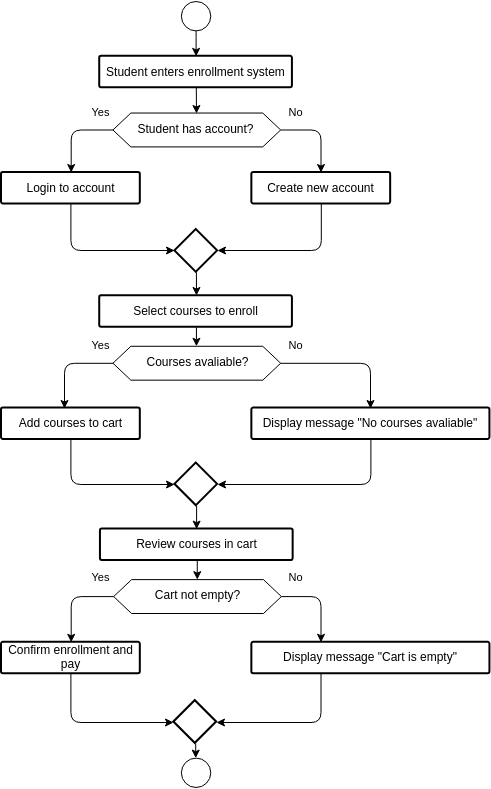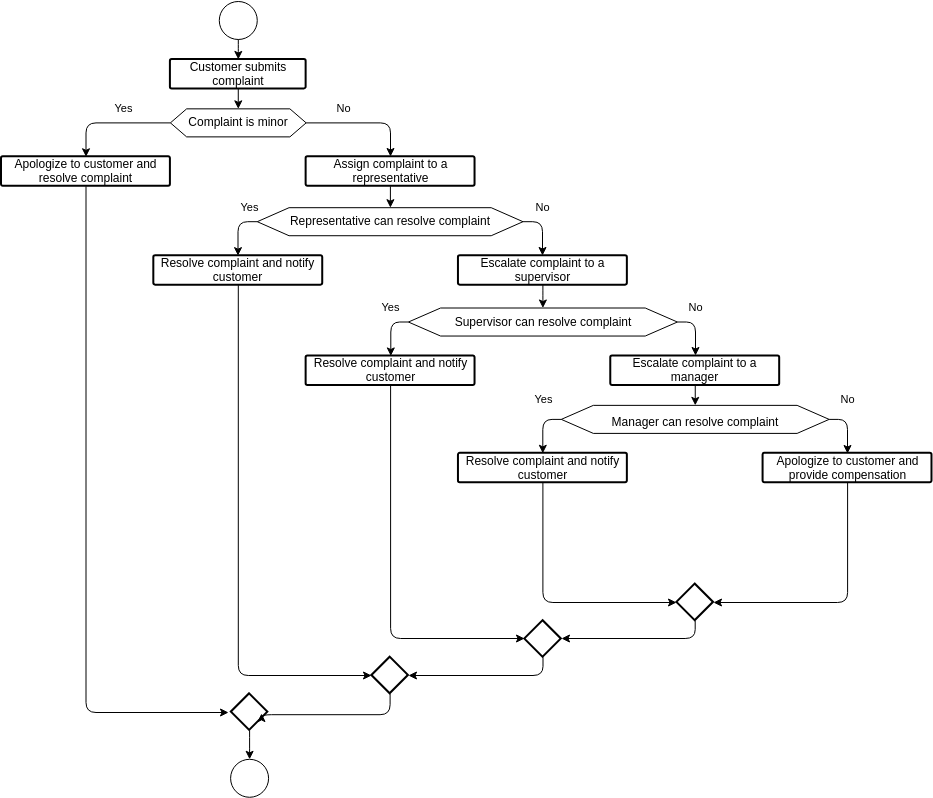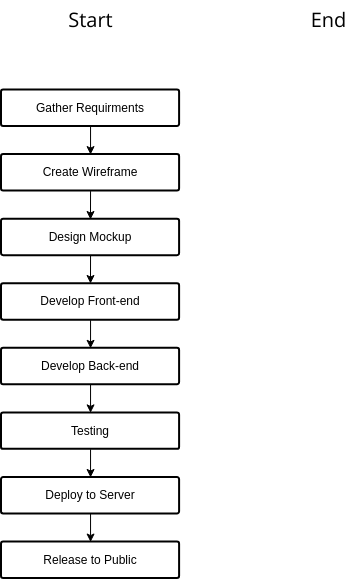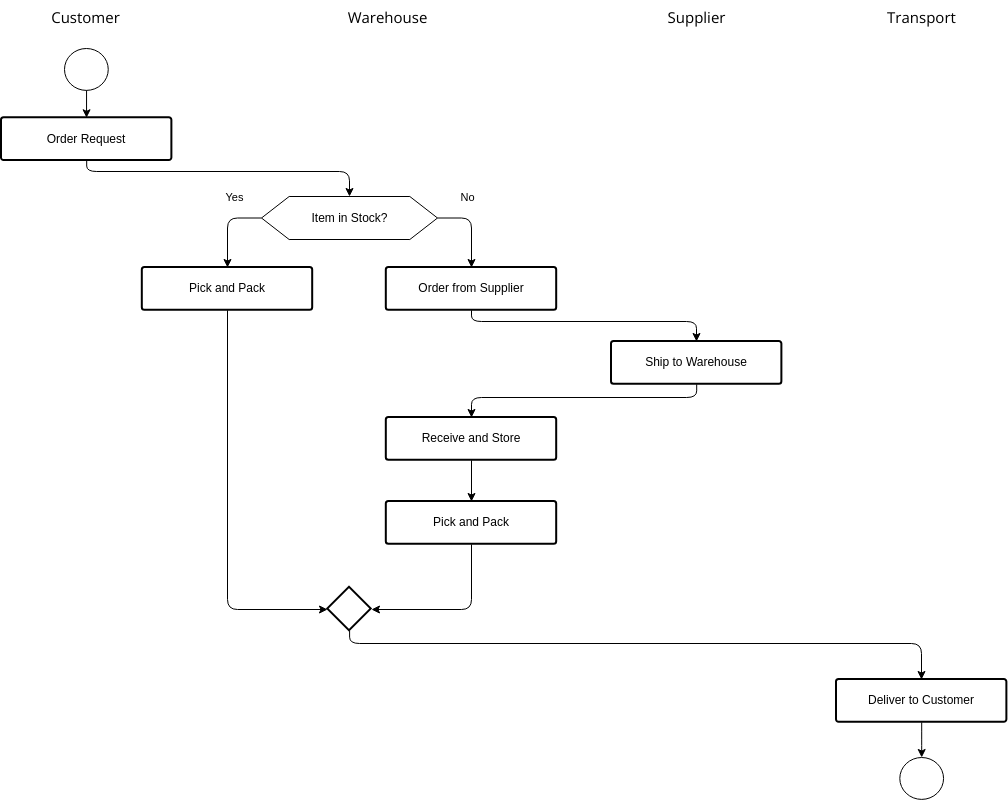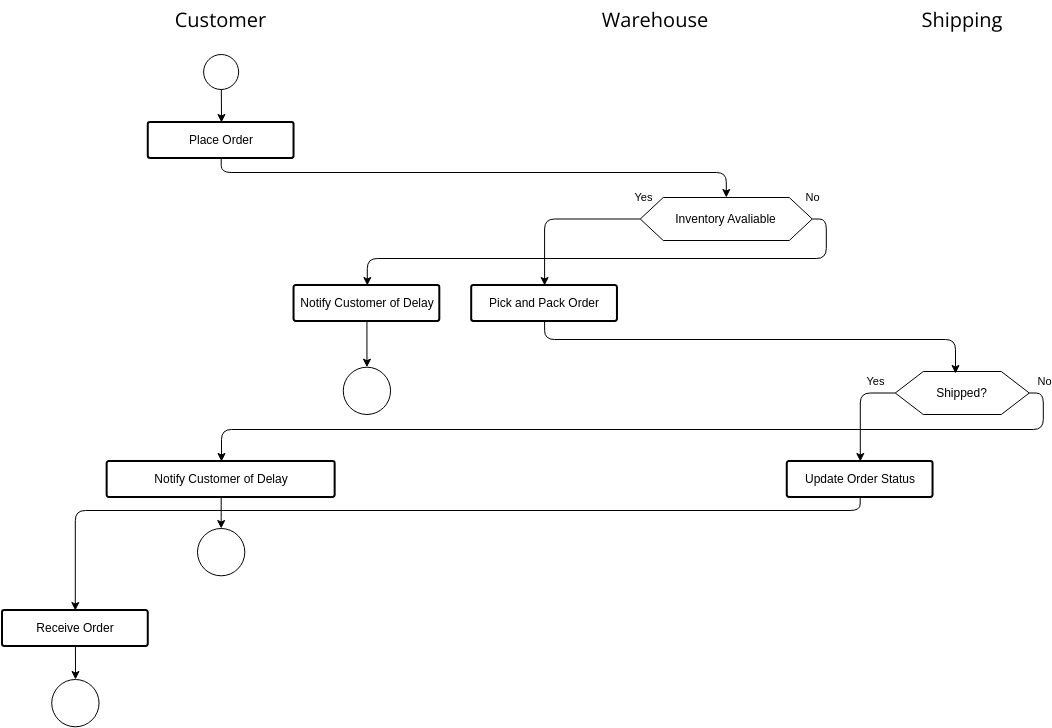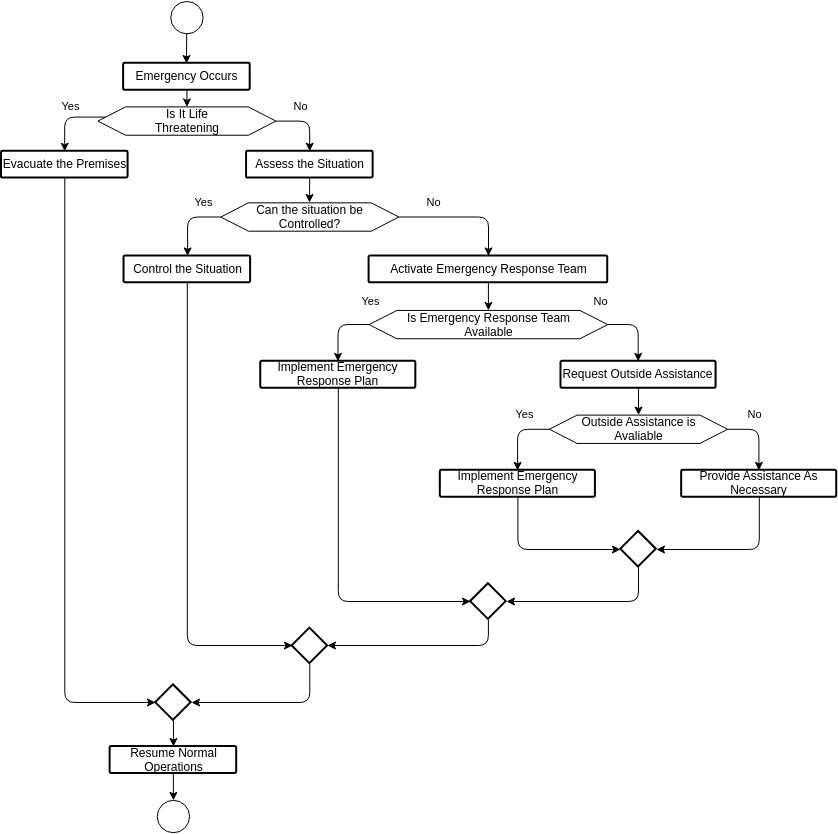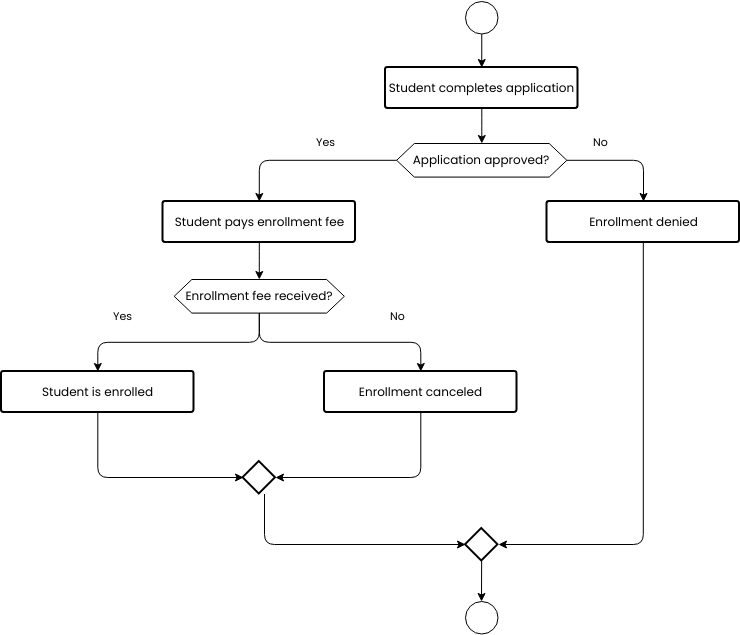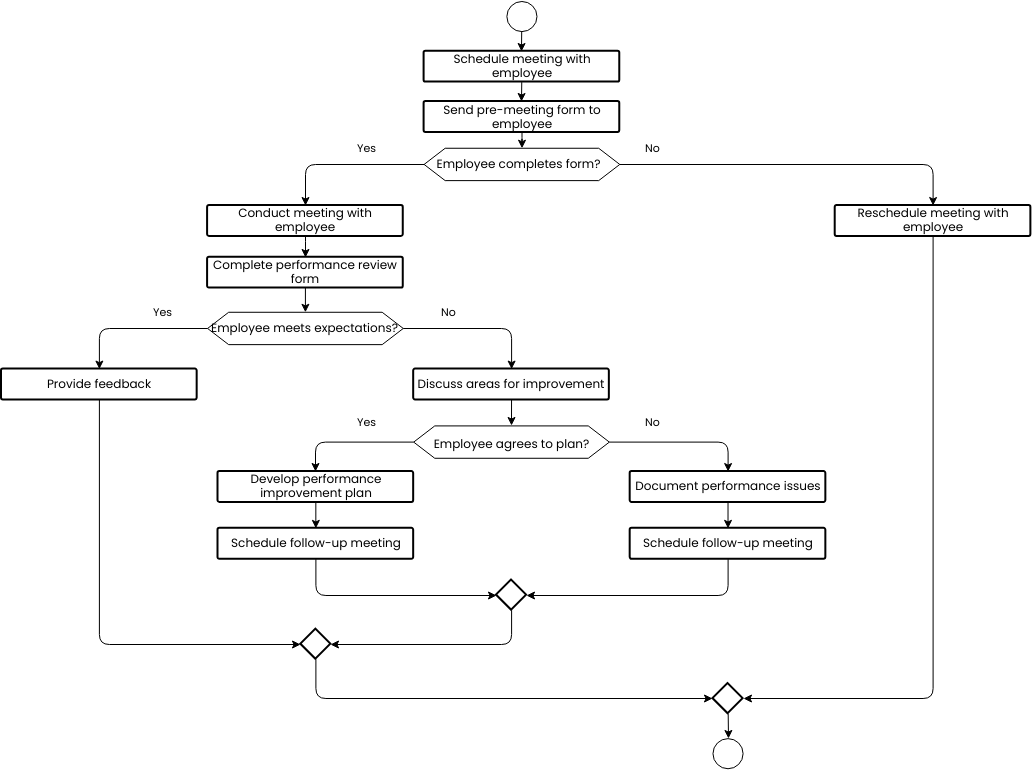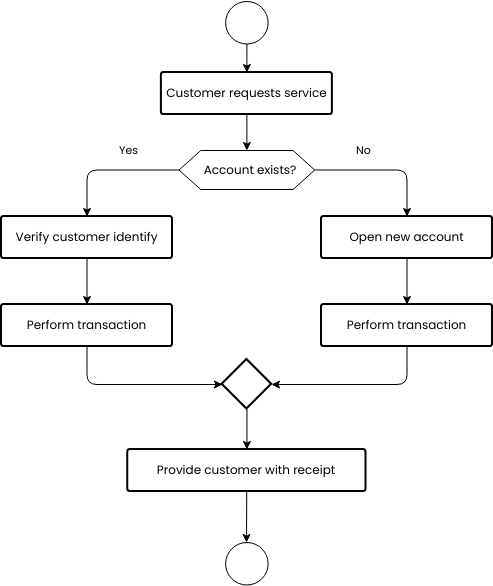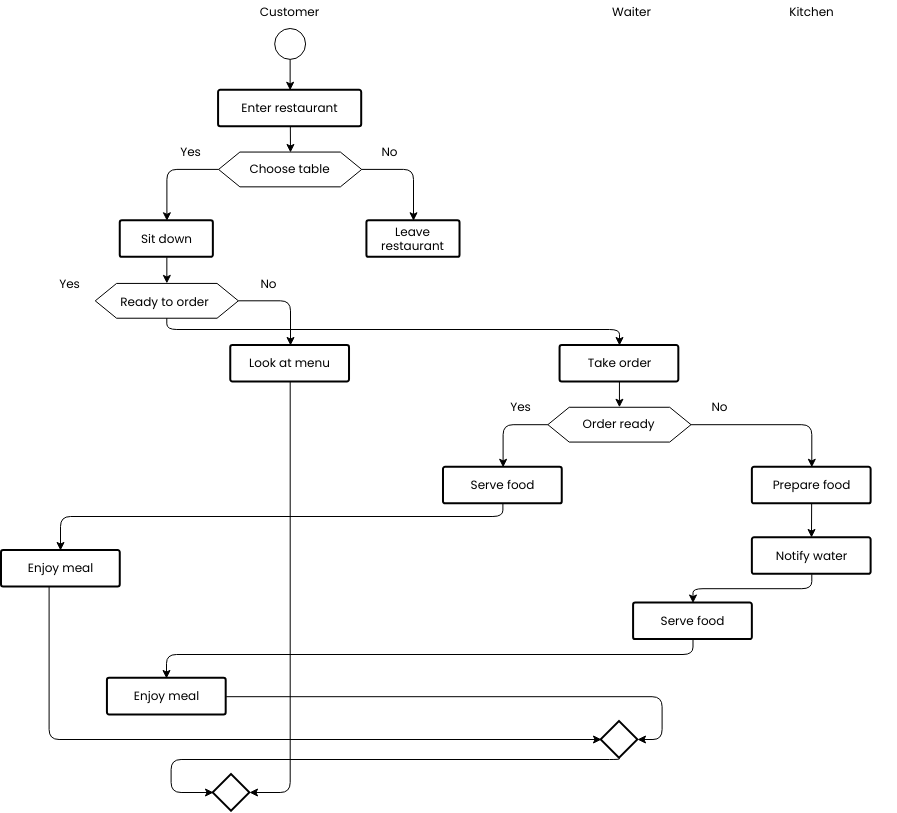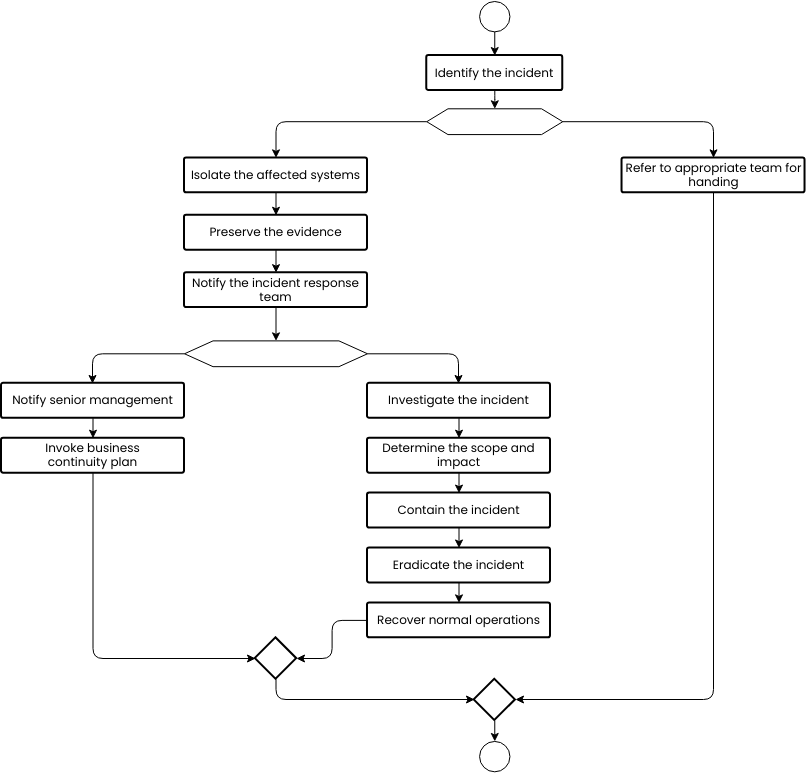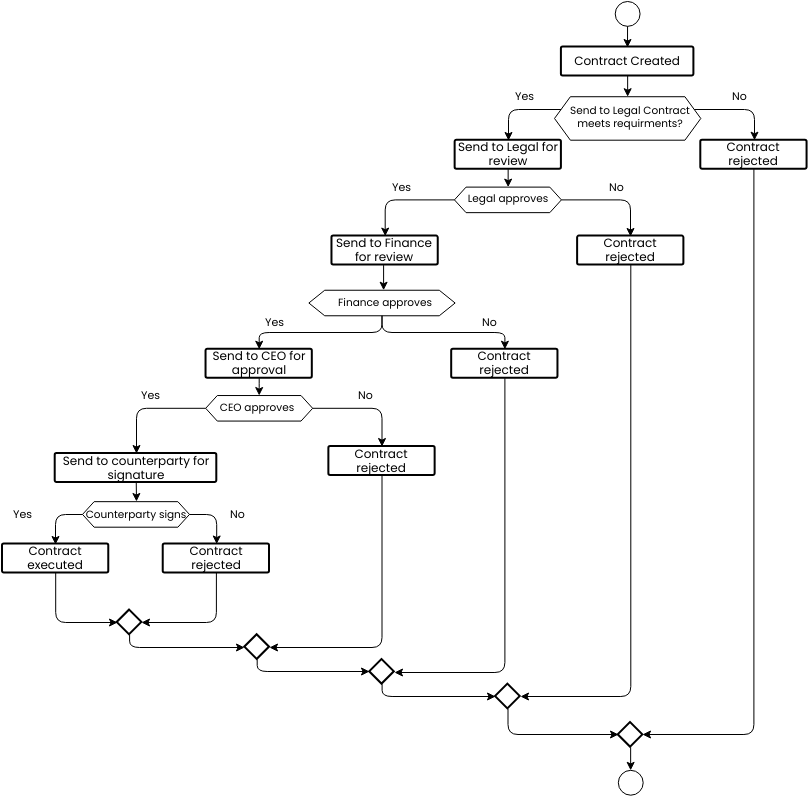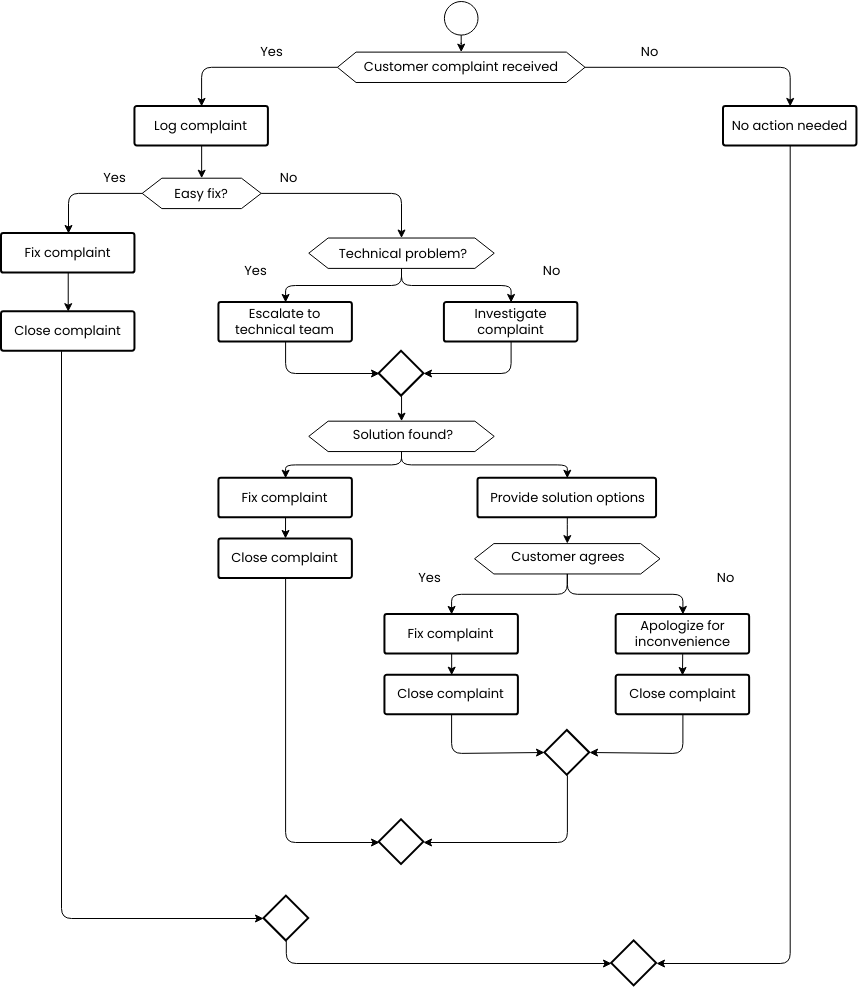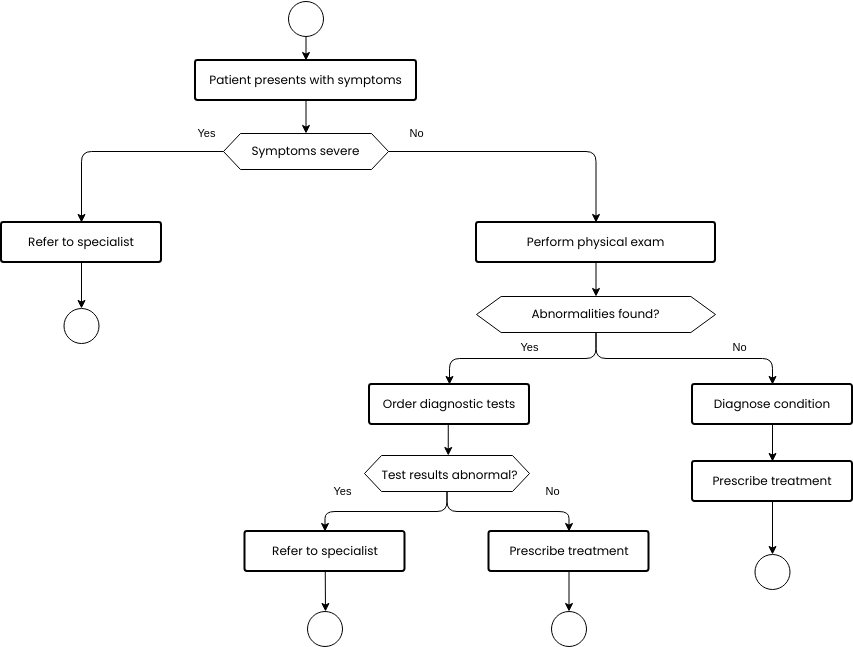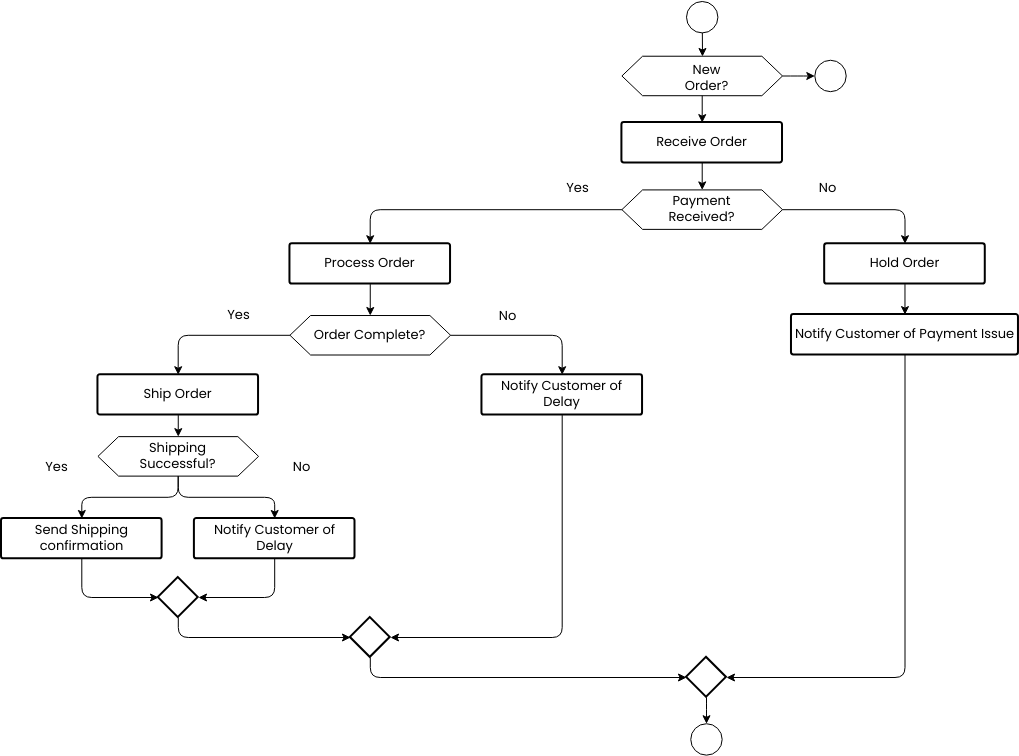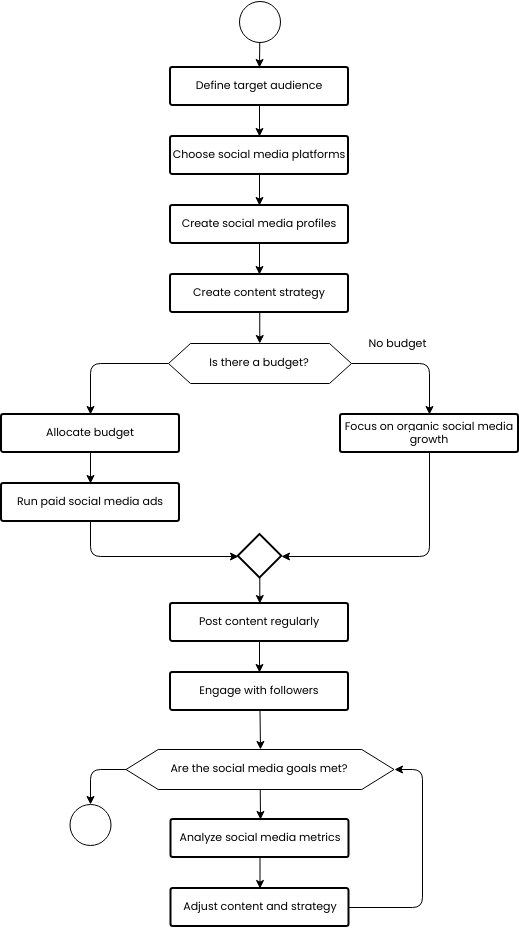The project management flowchart outlines the steps involved in planning and executing a successful project. The first step is to define the project scope, which involves determining the boundaries of the project. Next, the project goals and objectives are identified to align the project with the overall business strategy.
Creating a project plan is the next step, which involves determining the tasks required to achieve the project goals, assigning responsibilities to team members, and establishing a timeline and budget. This ensures that the project is organized and progress can be monitored.
Executing the project plan is the most critical step, as it marks the beginning of the project and allows the team to start working towards achieving the project goals and objectives. Finally, the project plan is revised by reviewing the progress of the project, identifying any issues, and making adjustments as necessary.
By following this project management flowchart, project teams can ensure that each step is performed correctly and efficiently, resulting in a successful project that achieves its goals and objectives. Proper project management can help businesses to increase efficiency, reduce costs, and improve customer satisfaction, driving long-term success.
Importance of creating project management
Creating a project management flowchart is important for the success of any project as it provides a clear and structured approach to project planning and execution. By defining the project scope, identifying project goals and objectives, creating a project plan, executing the plan, and revising it as necessary, businesses can ensure that projects are completed on time, within budget, and to the desired quality standards. A well-designed project management flowchart helps to ensure that all team members are on the same page, understand their roles and responsibilities, and are working towards a common goal.
Another important benefit of creating a project management flowchart is that it helps to identify potential issues or bottlenecks in the project planning process. By mapping out the project in a flowchart, businesses can identify areas where the process may be slowed down or could be improved. This can help businesses to streamline their project management process, reduce the risk of errors, and improve their overall efficiency and effectiveness. By ensuring that all team members follow the same project management process, businesses can reduce the risk of errors or oversights, which can lead to project delays, increased costs, and lost revenue.
Overall, creating a project management flowchart is important for businesses to manage their projects effectively, improving project outcomes, reducing costs, and increasing customer satisfaction. By providing a standardized process and identifying potential improvements, businesses can ensure their projects are completed successfully, within budget, and on time.
Searching for some flowchart templates? Go to Visual Paradigm Online and select some designs for customization now!
